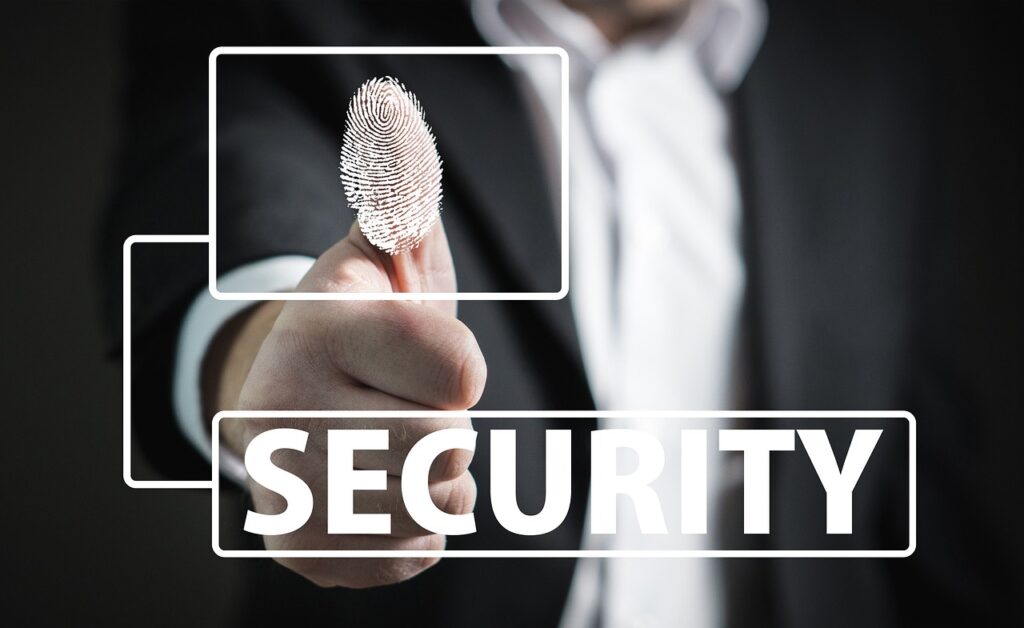In an ever-expanding digital world, the convenience of online connections brings not just ease but also the constant worry of stumbling upon scams and predators. As technology continues to advance, so do the sly tactics of cybercriminals, preying on unsuspecting individuals with little to no knowledge of their potential dangers and deceit. Let’s face it, the convenience of online interactions also comes with the risk of encountering scams and fraudulent activities. We all need to do as much as we can do to protect ourselves from online scams and predators looking to steal our identity. Here are 10 easy to follow tips to avoid online scam and protect your identity.

1. Update Your Software Regularly:
Regularly updating your device’s operating system and apps is crucial. These updates often include security patches that address vulnerabilities hackers could exploit. Regularly updating your the software on your devices may seem mundane but it’s a task that requires little to no effort and is one of the best ways to secure your digital fortress. Frequent updates not only enhance the functionality of your devices but also create an unyielding barrier that safeguards your personal information from potential breaches. Enable automatic updates to ensure you’re always running the latest, most secure version.
2. Use Strong and Unique Passwords:
Using strong passwords is crucial to avoiding online scams because they serve as a robust defense mechanism against unauthorized access and protect your personal information. Create strong, unique passwords for your device and all your apps. Size matters – think of your password as a novel rather than a short story. The longer, the better. A lengthy password adds an extra layer of resilience against brute-force attacks, providing more combinations for potential intruders to decipher. Avoid using easily guessable information like birthdays or “123456.” Avoid the pitfall of using the same password across multiple accounts. Each login deserves its unique passphrase, ensuring that even if one key is compromised, the entirety of your digital realm remains secure. Double down on security by enabling two-factor authentication whenever possible. This adds an extra layer of defense, ensuring that even if your password is compromised, access remains a formidable challenge.
3. Enable Biometric Authentication:
Most modern devices offer biometric authentication options such as fingerprint recognition or facial scanning. Biometric authentication provides a high level of security by relying on unique physical or behavioral traits, such as fingerprints, facial features, or iris patterns. This uniqueness makes it difficult for unauthorized users to replicate or forge biometric data. Enable these features for an added layer of security beyond traditional passwords.

4. Be Cautious with Public Wi-Fi:
Public Wi-Fi networks are often less secure than private ones. They are open and accessible to anyone in the vicinity, making it easier for cybercriminals to exploit vulnerabilities and launch attacks. Public Wi-Fi is susceptible to man-in-the-middle attacks, where a malicious actor intercepts communication between a user and the network. This allows them to eavesdrop on sensitive information, such as login credentials or financial details. Many public Wi-Fi networks lack encryption, leaving your data exposed to potential interception. Without proper encryption, any data transmitted over the network, including personal and financial information, is at risk of being intercepted by hackers. Avoid accessing sensitive information while connected to public Wi-Fi, and consider using a virtual private network (VPN) for added security.
5. Download Apps from Trusted Sources:
Just as you wouldn’t open your doors to strangers in the physical world, do not open your doors to would be criminals in your digital space. Your device is an extension of your personal space, and downloading from trusted sources is an act of guarding its sanctity. It’s a digital boundary, allowing only those with verified credentials to enter the intimate spaces of your digital life. Downloading from trusted sources shields you against the the potential security pitfalls of malicious apps. This trust is your armor, preventing potential betrayals that could compromise your device’s security. If possible, only download apps from official app stores like Google Play Store or Apple App Store. These platforms vet apps for security, reducing the risk of downloading malicious software.
6. Review App Permissions:
When installing apps, review the permissions they request. Be cautious if an app requests more access than seems necessary for its functionality. Deny permissions that don’t align with the app’s purpose. Protect your online devices by visiting our partners!

7. Use Two-Factor Authentication (2FA):
Enable two-factor authentication whenever possible. This adds an extra layer of security by requiring a second verification step, such as a text message code or authentication app, in addition to your password. Two-factor authentication (2FA) significantly strengthens security by adding an extra layer beyond just passwords. Even if a user’s password is compromised, an additional form of authentication (such as a code sent to their mobile device) is needed, making unauthorized access much more difficult. 2FA can be implemented across various devices and platforms, including computers, smartphones, and tablets. This adaptability ensures a consistent and secure authentication process, regardless of the device being used.
8. Be Wary of Phishing:
Be cautious of unexpected messages, especially those with links or attachments. Cybercriminals often use phishing attacks to trick users into revealing sensitive information. Phishing emails often aim to trick individuals into revealing personal information, such as usernames, passwords, and financial details. By being cautious, you minimize the risk of falling victim to identity theft, preserving the integrity of your online identity. Being wary of phishing emails is paramount in safeguarding your digital well-being and protecting sensitive information. Clicking on links or downloading attachments from phishing emails can lead to the installation of malware or ransomware on your device. Being cautious helps in avoiding these malicious software that can compromise your system’s security and functionality.
9. Secure Your Lock Screen:
The lock screen acts as the first line of defense against unauthorized access to your device. Securing it ensures that your personal data, contacts, messages, and other sensitive information remain protected from prying eyes. Set up a PIN, pattern, or biometric lock screen to prevent unauthorized access to your device. This ensures that even if your device is lost or stolen, your data remains protected.

10. Regularly Backup Your Data:
Regularly backing up your data is a crucial practice that ensures the security, integrity, and accessibility of your digital information. With the rise of cyber threats like ransomware, having recent backups is essential. Accidents, hardware failures, and unexpected events can lead to data loss. Regular backups act as a safety net, allowing you to recover lost or corrupted data, minimizing the impact of unforeseen circumstances. In the event of a cyber attack, where files may be encrypted or compromised, a backup ensures you can restore your data without succumbing to ransom demands. Frequently back up your mobile device’s data to a secure cloud service or computer. In case of loss, theft, or data corruption, you’ll be able to restore your important information.
Conclusion:
Your mobile device is an extension of your digital life, and safeguarding it is paramount. These ten easy tips serve as a digital shield, offering a practical and accessible guide to navigate the virtual landscape securely. By staying vigilant, embracing cybersecurity practices, and employing these tips, you empower yourself to enjoy the online world confidently and responsibly. By following these simple cybersecurity practices, you can enjoy the convenience of mobile technology without compromising your privacy and security. Stay vigilant, stay informed, and keep your online world safe and enjoyable.

Enjoy
30% Off